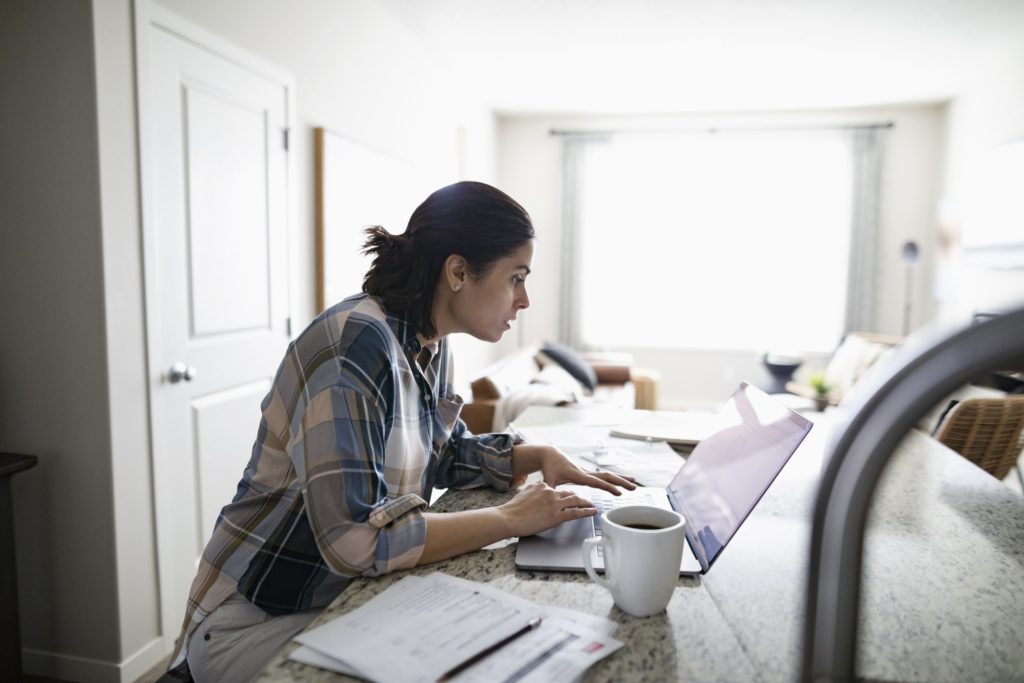Switching off after work can be challenging. After a long, busy, and stressful day, it can be hard to leave work behind and relax. Most of us have at some point struggled to enjoy the time that we spend with our friends and family because we are worried about something that has happened at work or are thinking about what we need to do the next day.
This can be even harder when you work from home. As much as most of us hate the commute, it’s a chance to switch off – to leave work behind and to draw a line under the day. When we work from home, it’s easy for the lines between home and work to become blurred, and so much harder to switch off and relax. Here’s a look at some of the reasons why we need to switch off, and some ways to make it easier after a long day of remote working.
Why You Need to Switch Off
The main reason to switch off at the end of the day is so that you can enjoy your time off, without work getting in the way, but there are other benefits. These include:
- Switching off and relaxing reduces stress and helps you to sleep. This is good for your physical and mental health.
- Leaving work behind can improve your relationships with your friends and family.
- If you are unable to switch off, you are more likely to grow to resent work. Switching off can help you to enjoy your job.
- Getting proper rest means that you return to work focused. You are more productive, and you get more done, making it easier to leave work behind the next day.
It’s always important to remember that work is just that. Your job, as much as you love it, shouldn’t get in the way of your life. Here are some ways to separate the two.
Take Breaks Throughout the Day
Taking breaks isn’t something that always feels natural when we work from home, without a structured pattern to our days, or other people to follow. We’re often guilty of trying to work more to get more done.
Unfortunately, this rarely works. Without breaks, we don’t work our best. We get tired, so struggle to focus and we’re more likely to clock off feeling as though we haven’t done our best.
Taking breaks through the day means that you work more productively, you enjoy your job more, and you don’t finish feeling tired and frustrated. This makes it far easier to switch off and leave work behind.
Create an Office Space
Working in a different location makes it much easier. There’s a literal space between work and home. You get time to turn off, and it’s much easier to set boundaries.
Working remotely doesn’t have to mean that you work from home, at least not all of the time. If you can, use coworking spaces, work in libraries, or other public areas.
When you do have to work from home, at least having a door that you can close at the end of the day will help. If you don’t have a room that you can use as an office, at least work in a room that you don’t spend most of your time off in. Set up a desk and workspace in an area of your home that isn’t used frequently, or at least a room that you don’t associate with relaxation and family time. For example, a workspace in your dining room is better than your lounge. It’s also important to ensure a clean work environment. If there are endless piles of papers everywhere, you need to start decluttering. To maintain a tidy work space, you will need a well-structured records management program. This will provide critical security benefits, both online and off. You can contact a trusted off-site storage partner that will keep documents safe from theft and fire and maintain restricted access, giving you peace of mind knowing that your documents are secure no matter what. Having a tidy work environment can help you feel better overall, since clean spaces help improve efficiency and concentration.
Use Separate Devices or Accounts and Turn Off Notifications
It’s almost impossible to switch off if your smartphone is constantly vibrating with emails, calls and other notifications that are to do with work. It’s hard to ignore notifications once you know they are there, and so it’s far better to avoid them in the first place.
If possible, use a different phone and tablet for work, and leave it in the office when you are finished for the day. If that isn’t possible, at least use different accounts, and turn off notifications, so work can’t interfere with your time off.
Get into a Routine
We’re very much creatures of habit. We get used to things and we like to have routines. If you get up at the same time every day, eventually you’ll do it without needing to set your alarm. The same goes for clocking off. If you finish work at the same time every day, your mind will start to expect it.
Once you’ve left work behind, spend a little time doing something that you find relaxing before you settle into your home life. Your mind will start to expect this too. You’ll no longer be fighting to leave work behind; it will start to feel more natural and less of a battle.
Play a Game
Casual gaming is a great way to relax and let go of any work stress. It’s quick and easy and a fantastic way to separate work and life. Online Casinos is an excellent place to look if you are after some easy, fun gaming. You can view the best options here, to find a site and game that helps you to unwind and enjoy some quiet time after work.
Get Some Exercise
Exercise is so useful when it comes to switching off. A short walk can help you to recreate the benefits of a commute, taking time to separate work and life. Something like Yoga can help you to relax and stretch out your muscles if you have been sat at a desk all day, and going for a run can help you to burn off any negative energy that you might be carrying.
Every day is different. Some days are busier than others. Sometimes work leaves us feeling happy, whereas other days it might be more stressful or emotional. Some days we leave knowing that we’ve done everything, others we leave tasks for the next day. This means that some days, leaving work behind is easier than others. Be flexible with your approach and honest with your feelings. If you can just close the door and leave work, do it. If you need to burn off some energy with a quick run, go for it. Recognise that every day will be different and make sure you’ve got the tools that you need to turn off after all of them.



Leave a Reply